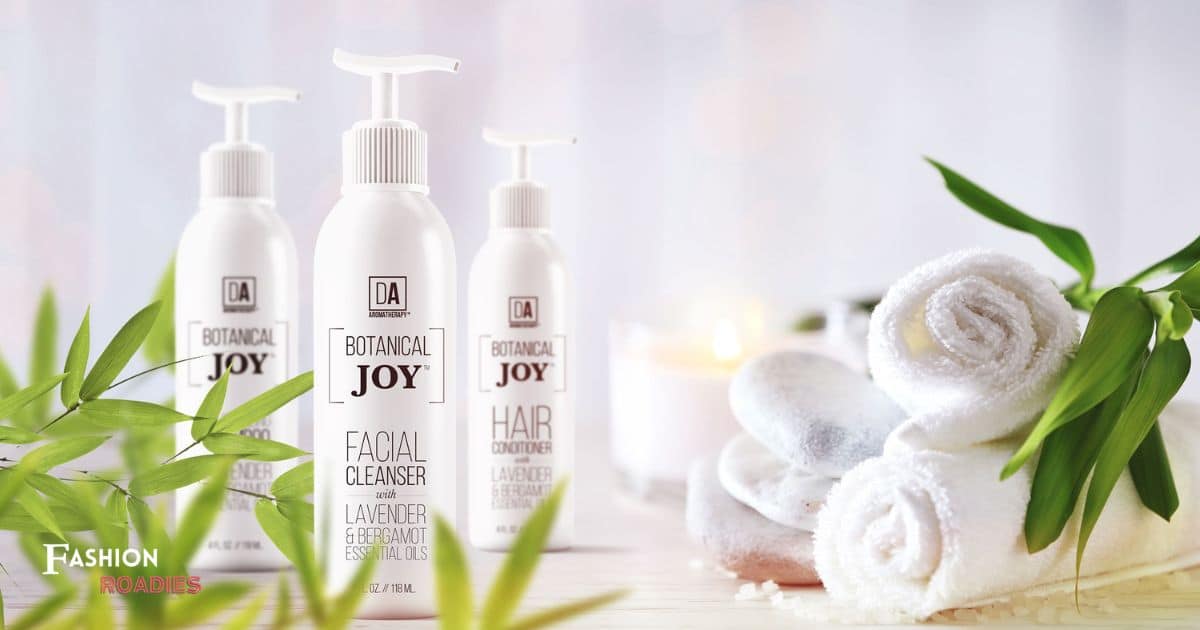Propanediol, a compound gaining popularity in the skincare industry, holds promise for enhancing hydration and moisturization. This article explores the origins, chemical composition, and potential benefits of propanediol in skincare products. Furthermore, we delve into its effects on skin absorption and overall product efficacy. Safety considerations and possible side effects are also addressed. Join us as we unravel the science behind propanediol and its potential role in achieving healthy, radiant skin.
Key Takeaways
- Propanediol is a sustainable ingredient derived from renewable resources and promotes environmentally friendly practices in the skincare industry.
- It acts as a humectant, attracting and retaining moisture in the skin, and has anti-inflammatory properties suitable for sensitive skin types.
- Propanediol enhances the absorption of active ingredients into the skin, leading to improved product efficacy and moisturizing properties.
- While generally considered safe for use, some individuals may experience skin or eye irritation, and alternative ingredients such as glycerin, hyaluronic acid, and squalane can be used for similar benefits with less risk.
The Origins of Propanediol in Skincare
In recent years, there has been a growing interest in understanding the origins of propanediol in skincare and its implications for product formulation and efficacy. Propanediol is a versatile ingredient commonly used in skincare products due to its ability to enhance product performance and improve skin absorption. It is typically derived from renewable resources such as corn, sugarcane, or glycerin through a manufacturing process that involves fermentation and purification. This process ensures the sustainability of propanediol production, as it reduces reliance on fossil fuels and minimizes environmental impact. Understanding the manufacturing process of propanediol is crucial for formulators to make informed decisions about ingredient sourcing and promote sustainable practices in the skincare industry. By considering the sustainability of propanediol production, skincare brands can align their formulations with the increasing consumer demand for environmentally friendly products. Transitioning into the subsequent section, it is also important to delve into the chemical composition of propanediol to further comprehend its efficacy and potential benefits in skincare.
Understanding the Chemical Composition of Propanediol
Propanediol, also known as 1,2-propanediol or propylene glycol, is a colorless, odorless liquid with a syrup-like consistency. It is a type of alcohol that consists of three carbon atoms and two hydroxyl groups. Understanding the chemical composition of propanediol is important in order to explore its benefits, safety considerations, and alternative options in skincare formulations.
Benefits of Propanediol
The utilization of propanediol in skincare products is associated with a myriad of advantageous properties, including enhanced moisture retention and improved skin texture. Propanediol, a popular ingredient in cleansers and serums, offers several benefits for the skin.
- Improved hydration: Propanediol acts as a humectant, attracting and retaining moisture in the skin. This helps to hydrate and plump the skin, leaving it feeling soft and supple.
- Enhanced penetration: Due to its small molecular size, propanediol can easily penetrate the skin barrier, allowing other active ingredients in the skincare products to be more effectively absorbed.
- Soothing and calming: Propanediol has anti-inflammatory properties that can help calm and soothe irritated skin, making it suitable for sensitive skin types.
Overall, the inclusion of propanediol in skincare products, such as cleansers and serums, can provide significant benefits for the skin, promoting hydration, improved texture, and a soothing effect.
Safety Considerations for Propanediol
When evaluating the safety considerations for propanediol, it is important to thoroughly understand its chemical composition and potential impacts on human health. Propanediol, also known as 1,3-propanediol or PDO, is a synthetic organic compound commonly used in various industries, including cosmetics and personal care products. While propanediol is generally considered safe for use in these products, it is essential to be aware of potential toxicity and allergies associated with its use.
Propanediol toxicity refers to the potential adverse effects that may occur when propanediol is ingested, inhaled, or comes into contact with the skin or eyes. Studies have shown that propanediol is generally safe at low concentrations, but higher concentrations may cause skin or eye irritation. Furthermore, some individuals may experience allergic reactions to propanediol, such as redness, itching, or swelling of the skin.
To ensure the safety of products containing propanediol, it is crucial for manufacturers to follow guidelines and regulations set by regulatory authorities. Additionally, consumers should always be mindful of their own sensitivities and consult a healthcare professional if they experience any adverse reactions. By understanding the potential risks and taking necessary precautions, propanediol can be used safely in various applications without compromising human health.
Propanediol Alternatives in Skincare
Exploring alternatives to propanediol in skincare involves understanding the chemical composition of various ingredients and their potential benefits for skin health. Propanediol is a commonly used ingredient in skincare products due to its moisturizing properties. However, some individuals may have concerns about potential risks associated with its use. Fortunately, there are alternative ingredients that can provide similar benefits without the same level of risk. Some potential alternatives to propanediol include:
- Glycerin: A natural humectant that attracts moisture to the skin, helping to keep it hydrated and supple.
- Hyaluronic Acid: Known for its ability to hold up to 1000 times its weight in water, hyaluronic acid is a popular ingredient for plumping and moisturizing the skin.
- Squalane: Derived from plants or animals, squalane is a lightweight oil that helps to lock in moisture and improve skin texture.
When considering propanediol alternatives, it is important to consult with a skincare professional to determine the best option for your specific skin type and concerns.
The Role of Propanediol as a Humectant in Skincare
Propanediol’s effectiveness as a humectant in skincare formulations has been widely studied and proven. When compared to other humectants commonly used in cosmetics, such as glycerin and hyaluronic acid, propanediol has shown superior hydration properties. Its small molecular size allows it to penetrate the skin easily, delivering moisture deep into the epidermis. This makes propanediol an excellent choice for dry or dehydrated skin types. Additionally, propanediol has the ability to attract water from the environment, further enhancing its moisturizing capabilities. By increasing the skin’s water content, propanediol helps to plump and smooth the complexion, reducing the appearance of fine lines and wrinkles. Its lightweight texture also makes it suitable for all skin types, including oily and acne-prone skin. Overall, propanediol offers potential benefits for hydration and moisturization, making it a valuable ingredient in skincare products.
Propanediol’s Potential Benefits for Hydration and Moisturization
One potential benefit of propanediol is its ability to enhance hydration and moisturization, which can be beneficial for individuals with dry or dehydrated skin. Propanediol acts as a humectant, attracting and retaining moisture in the skin, thereby improving its overall hydration levels. This ingredient also plays a role in strengthening the skin barrier function, which helps to prevent water loss and protect against external aggressors.
- Propanediol’s moisturizing properties can help alleviate dryness and restore the skin’s natural moisture balance.
- Its ability to enhance hydration can improve the appearance of fine lines and wrinkles, making it a valuable addition to anti-aging skincare formulations.
- Propanediol’s gentle and non-irritating nature makes it suitable for sensitive skin types.
Understanding the impact of propanediol on skin absorption and product efficacy is crucial in maximizing its benefits for skincare.
The Impact of Propanediol on Skin Absorption and Product Efficacy
Several studies have demonstrated the significant impact of propanediol on skin absorption and the efficacy of skincare products. Propanediol is a multifunctional ingredient commonly used in skincare formulations for its ability to enhance the absorption of active ingredients into the skin. It acts as a penetration enhancer, helping other ingredients to penetrate deeper into the skin layers. This increased absorption can lead to improved product efficacy, as active ingredients are able to reach their target sites more effectively. Additionally, propanediol has moisturizing properties, helping to hydrate and soften the skin. Its ability to increase skin absorption and improve product efficacy makes propanediol a valuable ingredient in skincare formulations. As a result, it is often used in a wide range of products, including moisturizers, serums, and creams, to enhance their effectiveness and provide optimal results.
Safety Considerations and Potential Side Effects of Propanediol in Skincare
When considering the safety of propanediol in skincare products, it is important to assess potential side effects and skin reactions. While propanediol is generally considered safe, some individuals may experience irritation or allergic reactions. Long-term safety concerns regarding the use of propanediol in skincare products also warrant further investigation.
Skin Reactions to Propanediol
Skin reactions, such as irritation and redness, can occur due to the presence of propanediol in skincare products. Propanediol is a common ingredient found in many cosmetic and personal care items, including moisturizers, serums, and cleansers. While it is generally considered safe for most individuals, some people may experience skin sensitivity or allergic reactions to this ingredient. It is important to note that everyone’s skin is unique, and what works for one person may not work for another. To minimize the risk of adverse reactions, it is recommended to patch test new products before applying them to the entire face or body. If any signs of irritation or redness occur, it is best to discontinue use and consult a dermatologist.
Some important points to consider about skin reactions to propanediol include:
- Skin sensitivity: Individuals with preexisting skin conditions, such as eczema or rosacea, may be more prone to reactions.
- Allergic reactions: Some individuals may have allergies to propanediol or other ingredients in skincare products, leading to skin irritation.
- Proper usage: Following the recommended usage instructions and not exceeding the recommended concentration of propanediol can help minimize the risk of adverse reactions.
Long-Term Safety Concerns?
To ensure the long-term safety of using propanediol in skin care, it is essential to thoroughly study the potential side effects and consider appropriate safety considerations. Propanediol, also known as 1,3-propanediol or PDO, is a commonly used ingredient in skincare products due to its ability to enhance moisture retention and improve product texture. However, there have been concerns regarding its long-term safety.
Studies have shown that propanediol is generally safe for use in skincare products when used in appropriate concentrations. However, like any other ingredient, it is important to consider potential side effects. Some individuals may experience skin irritation or allergic reactions when using products containing propanediol. Therefore, it is important to conduct comprehensive safety assessments, including patch testing and clinical trials, to identify any potential risks associated with its long-term use.
Additionally, regulatory bodies such as the FDA and the European Commission have set guidelines and restrictions on the use of propanediol in cosmetic products to ensure consumer safety. By following these guidelines and conducting thorough research, we can confidently address any long-term safety concerns associated with the use of propanediol in skincare.
Frequently Asked Questions
Can Propanediol Be Used on All Skin Types?
Propanediol is a versatile ingredient commonly used in skincare products. While it offers many benefits such as hydration and improved product absorption, it is important to note that individuals with sensitive skin may experience adverse reactions.
Is Propanediol Safe to Use During Pregnancy?
The safety of using propanediol in skincare during pregnancy is a topic of concern. It is important to evaluate the potential risks and consult with a healthcare professional before incorporating propanediol into your skincare routine during pregnancy.
Can Propanediol Cause Skin Irritation or Allergies?
Propanediol is generally considered safe for use in skin care products. While it can cause skin irritation or allergies in some individuals, it is generally less irritating compared to other common skin irritants.
How Does Propanediol Compare to Other Humectants in Terms of Effectiveness?
Propanediol, a humectant commonly used in skin care, stands out for its effectiveness in comparison to glycerin. Its ability to attract and retain moisture makes it beneficial for dry skin, providing hydration and improving overall skin health.
Are There Any Potential Long-Term Effects of Using Propanediol in Skincare Products?
Potential risks and safety concerns associated with the long-term use of propanediol in skincare products have been a topic of interest. Extensive research is needed to determine any adverse effects and establish safe usage guidelines for this ingredient.
Conclusion
In conclusion, propanediol in skincare is a powerful humectant that holds great potential for hydration and moisturization. Its chemical composition allows for effective absorption into the skin, leading to improved product efficacy. While safety considerations and potential side effects should be taken into account, propanediol offers a promising solution for those seeking optimal skin hydration and moisture retention. Its inclusion in skincare products can greatly enhance the overall effectiveness and benefits for the skin.










